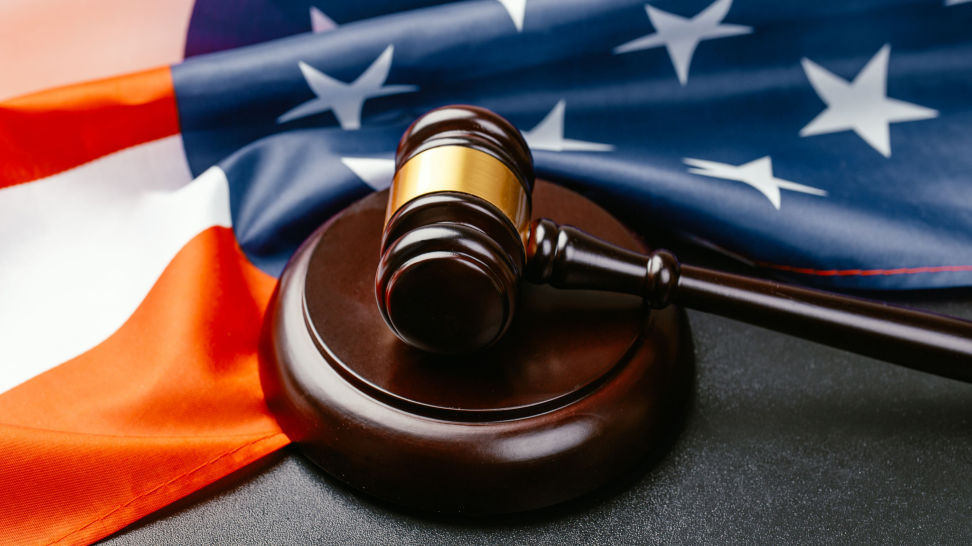No one expects to get sued, but it happens all the time. You spend your life working hard for your retirement savings and don’t want to lose them to a lawsuit. Fortunately, you can keep your retirement accounts protected by staying proactive.
At Blake Harris Law, our experienced asset protection attorney aim to help you protect your assets from lawsuits. Below, we explain the federal protection law surrounding the different types of retirement accounts. Continue reading to learn if you need to take any steps to secure your individual retirement account.
Does federal law protect Individual Retirement Accounts (IRAs)?
Generally, most IRAs are protected from creditors, though a few exceptions might put your funds at risk. In 2005, the U.S. Supreme Court added federal protection to traditional IRAs and Roth IRAs to a “reasonably necessary” extent. If your retirement accounts have funds above this reasonable amount, you may suffer a monetary penalty to your retirement funds during a lawsuit.
The ruling didn’t state an exact number, so individual judges may use their best discretion when determining excessive funds. Average employed individuals typically don’t exceed the IRA creditor protection laws, though business owners might.
If your company has increased lawsuit risks, you should consider hiring a financial planner or attorney to discuss your options.
Medical institutions are an excellent example, though nearly all businesses risk lawsuits. If someone slips and falls in your store, or trips outside, they might sue. Even fully online companies risk non-ADA-compliance lawsuits if their websites don’t meet digital accessibility standards.
The most common type of lawsuit possibly affecting retirement accounts comes from unpaid tax debts to the Internal Revenue Service (IRS), violating the Internal Revenue Code. If an individual or business files bankruptcy, a judgment creditor may seek the owed funds a few months after the debtor files. The judgment debtor might lose some retirement assets, depending on the state, sums deposited, inherited IRAs, and more.
The Bankruptcy Abuse Prevention and Consumer Protection Act
The Bankruptcy Abuse Prevention and Consumer Protection Act (BAPCPA) offers federal protection for certain retirement funds up to $1 million. This IRA creditor protection won’t apply to anyone who uses their retirement accounts for prohibited purposes, like pledging it to receive a loan. Laws differ from state to state, which we discuss below.
IRA Lawsuit Protection By State
State laws usually attempt to protect individuals from losing all their retirement account funds to a lawsuit. For example, California dictates the court may not award judgment creditors (or anyone filing the lawsuit) funds from a retirement account that would create unreasonable living standards.
Some states fully protect IRAs. The safest states to live in for protecting IRA funds include Arizona, Texas, and Washington. Arizona state laws only allow the judgment creditor to seek retirement funds during bankruptcy from the last 120 days of contributions, meaning everything prior has 100% legal protection.
Many states, like Michigan, exclude inherited IRAs from the $1 million protection policy. As an inheritor, if you file bankruptcy, your inherited IRA won’t stay protected from creditors unless you inherited it from a former spouse.
Other states, like New Hampshire and New Mexico, offer zero regulations protecting retirement assets from judgment creditors. In such areas, the judgment debtor must rely on the federal bankruptcy law and other mandates above to stay protected from creditors.
Are all types of IRAs protected from lawsuits?
Depending on retirement planning needs and programs sponsored by employers, individuals people might choose an individual retirement annuity, traditional IRA, rollover IRA, Roth IRA, simplified employee pension plan (SEP), or simple IRA.
Different retirement plans offer different structures, guidelines, and end goals. For example, simple IRAs allow employees and business owners to contribute to the same retirement fund account. Rollover IRAs allow you to transfer IRA assets from a previous employer’s sponsorship to a new retirement plan. A pension plan offers retirement income funding solely by the employer.
Each type of IRA has different levels of protection from lawsuits. Inherited IRAs and benefits accrued typically offer the least creditor protection, while a common Roth IRA includes more federal and state shielding.
The Retirement Income Security Act of 1974 offers some protection to retirement plans like 401(k), 403(b), and pension plans. The IRS and legal spouses are the only threats to employer-sponsored 401(k) plans. Otherwise, any lawsuits you receive won’t impact the retirement benefits in your 401(k).
Using Bankruptcy To Avoid Seizure
Often, when an individual or business accrues excessive debt, creditors seek their assets to cover the dues. In such scenarios, you could lose your car, property, or other valuable items. To prevent asset seizures, many chose to file bankruptcy.
The Federal Bankruptcy Code outlines different bankruptcy protection methods to help those struggling with debt so that they don’t lose everything. Bankruptcy typically results in a reduced total debt or property seizure, depending on what you owe. The bankruptcy court will consider your current income and assets compared to your obligation to determine how much you can reasonably pay off in a lifetime.
IRA Asset Protection Strategies
Taking proactive steps to protect your IRA will help you avoid massive legal complications in the future. For example, your state could remove a protected funds law resulting in your money being at risk. Relying on creditor protection from state or federal laws might land you in trouble since exceptions apply to these rules.
Instead, we recommend taking legal action now to keep your IRA safe. When doing so, you have a few options.
Domestic Asset Protection
Domestic asset protection trusts (DAPTs) are irrevocable trusts that allow you to place your earnings in the name of the trust while remaining the main beneficiary. Since these assets no longer exist under your name, they enjoy increased creditor protection. As the beneficiary, you can still access the money at almost any time.
Keep in mind certain states have different laws surrounding DAPTs. Most require a probationary period where the money won’t be protected, so debtors can’t fund a trust after receiving a lawsuit. Aside from this rule, many other exceptions might apply, so you should speak with your attorney about the right option for your needs.
Offshore Asset Protection
Some people also place their savings in an offshore asset protection trust as an alternative to the domestic option above. Self-settled offshore asset protection trusts are irrevocable and have one independent trustee. The main benefit of opting for offshore is avoiding U.S. jurisdiction.
The most popular areas for creating offshore trusts include the Cook Islands and St. Kitts and Nevis.
We recommend discussing this option with an asset protection attorney before pursuing anything. Overseas accounts involve complex laws and regulations that require professional counsel.
Other Ways To Protect Traditional and Roth IRAs
Aside from opening an asset protection trust, you can use the following proactive measures to keep your IRA safe:
- Purchase liability insurance: Liability insurance covers the expenses of any lawsuits against you or your company, plus the physical damages, injuries, medical costs, and property damages. We recommend all business owners and vehicle drivers purchase liability insurance to prevent an expensive lawsuit that could damage their IRA savings.
- Consider umbrella coverage: Umbrella coverage takes liability insurance a step further, covering many expensive assets. During a lawsuit, your umbrella insurance company covers your case’s expenses and provides legal defense. Keep in mind that umbrella and liability policies won’t cover intentional actions.
- Professional malpractice insurance: If you own a business with professionals who provide a service, you risk a customer suing for inadequate service fulfillment. The most common example of this lawsuit is medical malpractice. You can purchase insurance that specifically covers this scenario.
- Pay off taxes: If you owe money to the IRS and predict that the agency might attempt to reclaim it from your IRA account, consider paying off the debts if you can. We understand this frequently isn’t an option, though it could be the answer for some.
- Fulfill your owed child support debts: Owing child support could also put your savings at risk. If you have the financial stability to pay back this debt, we recommend doing so before losing any retirement money.
- Hire a lawyer: The smart way to protect your money is to speak with an asset protection attorney about your options.
At Blake Harris Law, we have ample experience helping clients resolve their legal troubles without losing all their savings.
Blake Harris Law: Helping You Protect Your Future
Whether or not you’re facing a lawsuit, we recommend you protect your hard-earned wealth so you can enjoy your retirement. The easiest way to avoid legal trouble is by thinking, planning, and staying ahead and practicing the proactive measures we mentioned above.
When you’re ready to protect your future, contact our team at Blake Harris Law by filling out our online form to speak with an experienced asset protection planning attorney.



